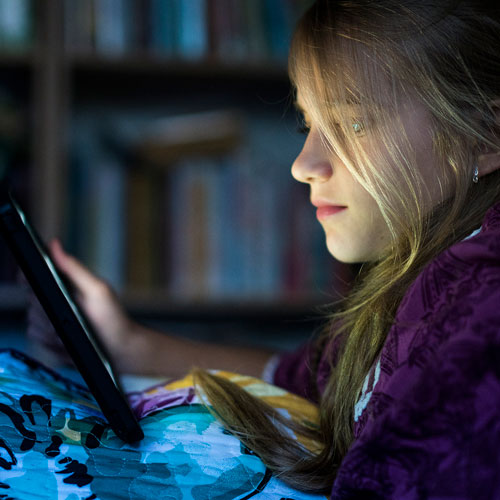“There has been progress in services provided for women who suffer from domestic or sexual violence,” says Leivy Suyuc, Project Coordinator for Renacimiento, ChildFund`s local partner in Comalapa, a town in Guatemala’s impoverished highlands. “In Guatemala City, for example, you can find shelters and legal counsel for women who have been abused. There are also special units at police stations and public attorney agencies that investigate cases of sexual violence and physical abuse. But outside the city, these services are scant.”
Comalapa and the nearby community of San Martin Jilotepeque have a year-old project to address domestic and sexual violence. Supported by ChildFund, Voices Against Sexual Violence is a support network of police, local authorities and health care workers who are trained to help victims.
“Local culture tends to look the other way when it comes to sexual violence or simply deny it exists,” says ChildFund Guatemala’s National Director, Mario Lima. “It is a patriarchal culture, and girls and young women in these parts may feel they have nowhere to turn. This is what the project is trying to solve.”
Often, when women are abused by husbands or partners, the abuse continues into the next generation, with children becoming victims or abusers as they grow up. Efforts like “Voices” help create an environment where people feel more open to talking about violence and abuse, which ultimately reduces the number of cases.
The Guatemalan Ministry of Health’s local centres provide primary care to victims and, if necessary, refer them to hospitals. Then, if the victim wants to report her case to local authorities, a municipal department for women and the national police’s special unit for women are available to assist her. Their staff members are part of the Voices network and provide a friendly ear and legal counsel.
“So far, during the year since we’ve opened up, we have handled seven cases,” Leivy says. “It has not been easy convincing people they need to report sexual violence, especially because of fear of reprisals, stereotypes and lack of trust in public institutions. We suspect there are more cases out there, but we also have to remember we are working in small communities where everyone knows each other and the stigma of sexual violence can be hard to deal with.”
The project began with establishing the most basic procedures: inviting organisations to join the support network, and training staff members at health care centres and police departments. Local grassroots organisations and young women from ChildFund’s I Respect and Protect Myself project were also recruited into the effort. This group launched an awareness campaign in Comalapa and Jilotepeque, not only to prevent sexual violence but also to encourage reporting abuse to local authorities or members of the network.
Leivy says the program will continue throughout 2016: “We just received some extra financing by a local institution, and with all the partners and protocols in place, we can really make a difference. We are confident that girls and young women will overcome their fear and shame, knowing we are here for them and will not let them down.”
Anshula was just eight years old when she was raped by two teenage boys. Both her parents were speech-impaired, and a schoolteacher alerted authorities about the crime. Anshula was able to receive the support and care she needed, with ChildFund Sri Lanka arranging for her and her family to receive safe transportation to the police station and other agencies, and helped her obtain medical care as well as counselling.
Child abuse, neglect and exploitation are on the rise in Sri Lanka, according to UNICEF. Factors driving this increase include parental substance abuse, early marriage, educational struggles and family disintegration, among others.
In response, ChildFund Sri Lanka staff are trained to immediately respond to child abuse incidents in communities, following established protocols to refer children and families to appropriate agencies for assistance. Every ChildFund and local partner office displays a poster providing clear guidance on the procedures to be followed when staff or volunteers see or suspect abuse, when any allegation of abuse is made either in person or anonymously, or when a child directly reports abuse.
Shanthi is a Lead Mother in a parent training and support program developed by ChildFund to support early childhood development. “The child protection reporting system is very useful and allows Lead Mothers to act proactively on child protection issues while they are doing household follow-up visits,” she says. “The community is much more aware compared to before. It would also be good if awareness programs could be conducted for parents together with their children.”
Grant-funded projects in Sri Lanka also address child protection. The Economic Empowerment for Vulnerable Families project has introduced goat farming as a home-based livelihood for women to enable them to stay at home and care for their children.
ChildFund also helps communities learn about child protection issues, and works to protect children by supporting Village Child Rights Monitoring Committees (VCRMCs) established by the government at the community level. Made up of village residents, the VCRMCs meet regularly to prepare and implement action plans to reduce child abuse. Local partners help them to organise programs which are led by police officers, child rights protection officers, health officers, religious leaders and child protection experts, who communicate about the damage caused by child abuse and how to prevent it.
According to a child protection consultant in Sri Lanka`s Department of Probation and Child Care Services, ChildFund and its local partner in Trincomalee have given “moral support to strengthen the work at the community level.”
A child protection focus extends into ChildFund`s programs for all ages. Thirteen-year-old Hasantha, who is enrolled in a ChildFund program for teens, says, “I don`t know how to define child protection. But I know that a lot of people, NGOs and other committees are working to help children. I also know that in case of any child abuse or child rights violation, children can now call 1929 [a child protection hotline] and explain things. Also, I learned that nobody has the right to hurt children and that all children have to go to school.”
Children are our future. It`s critical that we protect them.








